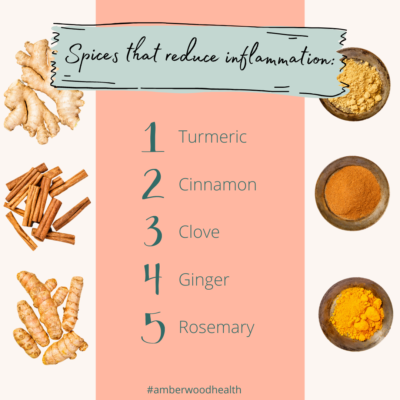“Why do they say my thyroid is fine when I feel so bad?”

When your thyroid labs are ‘normal’
Every week I see women who are told their thyroid labs are normal. Often there is a general sense of feeling unwell. Symptoms like fatigue, weight gain, hair loss and feeling cold are common. Being told you are fine when you know you are not is confusing and painful.
What’s being missed and why?
The number one reason is that the root cause of most thyroid disease in the developed world is not iodine deficiency. Hypothyroidism that is autoimmune in nature is called Hashimoto’s. Many are undiagnosed because it is rarely tested in conventional medicine
Secondly, lab ranges used for TSH is based on the initial research that included participants who had Hashimioto’s but they didn’t know it. This became apparent in subsequent research but the conventional markers don’t reflect this evidence.
Breaking Down Thyroid Markers
TSH: Thyroid stimulating hormone from the pituitary causes the thyroid to release T4. The functional range of TSH is anything under 2.5 or even 2. The conventional range only flags it over 4 or 5.
T4 is normal when the thyroid is doing what it needs to do. It then gets converted into T3. This happens in the liver, gut and peripheral tissues which doesn’t always happen. T3 is the metabolically active form so if the conversion doesn’t happen then we see symptoms.
Then there is total and free T4/T3. Free means its unbound from its protein carrier and is a better way to assess function.
Hormones are fat soluble and need to be attached to a protein carrier to circulate around the body. Thyroid binding globulin is required for this.
Finally thyroid antibodies indicate if there is an autoimmune reaction going on. I always include this as part of basic work up for new patients because it is so common.
Thyroid Nutrients
Just last week a patient told me they had started taking high doses of iodine because she suspected her thyroid was off. This is not a safe approach. In fact there is evidence that iodine restriction can be helpful in Hashimoto’s. Supplementing with thyroid nutrients is not a good starting place. Food is a much safer route to take.
Iodine is crucial for thyroid function. Deficiency is much less common today due to iodized salt. However many health conscious people switch to mineral or sea salt. If this is your plan make sure you eat sea vegetables. Cod is another excellent source of iodine.
Selenium is crucial for thyroid function. But it has a u-shaped curve meaning supplementation, even small amounts in a multi-vitamin, can be problematic after awhile. Eating brazil nuts is a much better choice.
Goitres are still a problem. In some patients it may be the only indication of Hashimoto’s. This isn’t completely understood but its linked to the next section.
Stress and inflammation
Thyroid hormone is required to metabolize cortisol. The testing I do shows both free and total cortisol. If these two markers are discordant it can indicate a thyroid issue. In some cases this will show up before thyroid markers go out of range. Keep in mind that stress is a trigger for autoimmune conditions. The common colds can also make symptoms worse and thyroid symptoms can flare with any type of stress.
Patterns to Rule Out
Often a patient comes to me convinced she has a thyroid issue but in fact something else going on. With a full panel we can see what’s actually happening. Here is a summary of the patterns that can happen:
1. Pituitary dysfunction: TSH is low or normal but T4 and T3 are not.
2. T4 not converted to T3: this is caused by inflammation, gut issues or nutrient deficiencies.
3. Thyroid binding globulin: high estrogen is common and can inhibit this transport system.
4. Low TRH (Thyrotropin-releasing hormone) from hypothalamus: this is caused by leptin/insulin resistence/inflammation.
5. Cellular resistance to thyroid hormone. caused by stress, cortisol and/or inflammation.
Don’t Treat Yourself
Given how thyroid is being mismanaged by our system its not unusual to see patients who are attempting to treat themselves. Ordering pharmaceuticals from Europe or trying high doses of iodine is not recommended. Get proper testing and find someone you trust to work with.
You can begin by doing an autoimmune protocol. Its worth trying this elimination diet at least once and it is something you can safely do at home. I have a course that walks you through it. I lead a group each spring or fall so people have support and somewhere to ask questions. Send me a note if you are interested.
Another therapy to consider is low dose naltrexone. I’m seeing lots of excellent results with this in patients who have been diagnosed with an autoimmune condition.
Two additional nutrients to consider getting tested are vitamin D and glutathione. These both stimulate t-regulatory cells for immune health. It can be as dangerous to have too much vitamin d as it is to have too little. This is why I suggest testing especially if you are supplementing. Enough daylight exposure is the best source along with cod liver oil at 1 tsp/day. Glutathione an important antioxidant involved with cellular energy production and immune function. It can be tested with a urine organic acids lab. Finally curcumin, in a bioactive form, combats inflammation and stimulates the immune system’s t-regulatory cells.
Related Posts
 How Stress Kills: Social Determinants of Health
How Stress Kills: Social Determinants of Health





